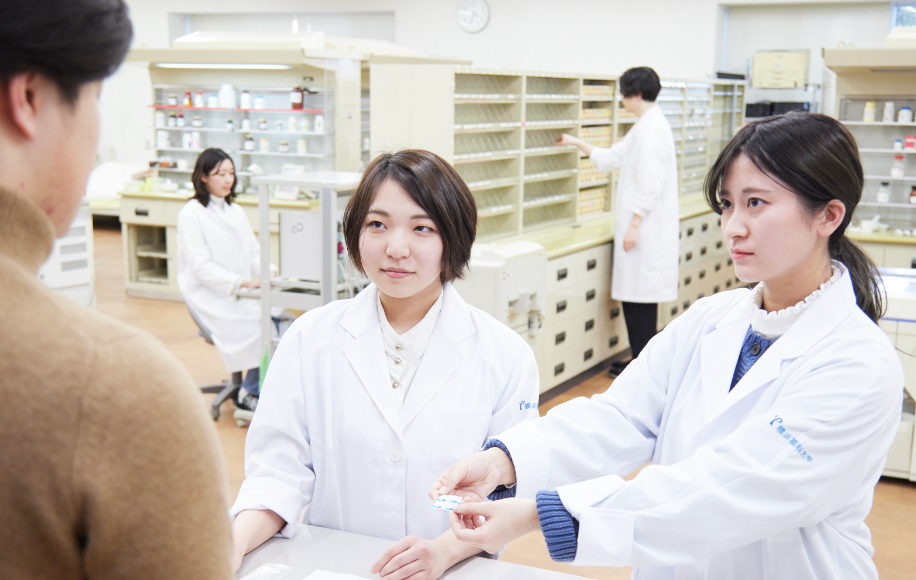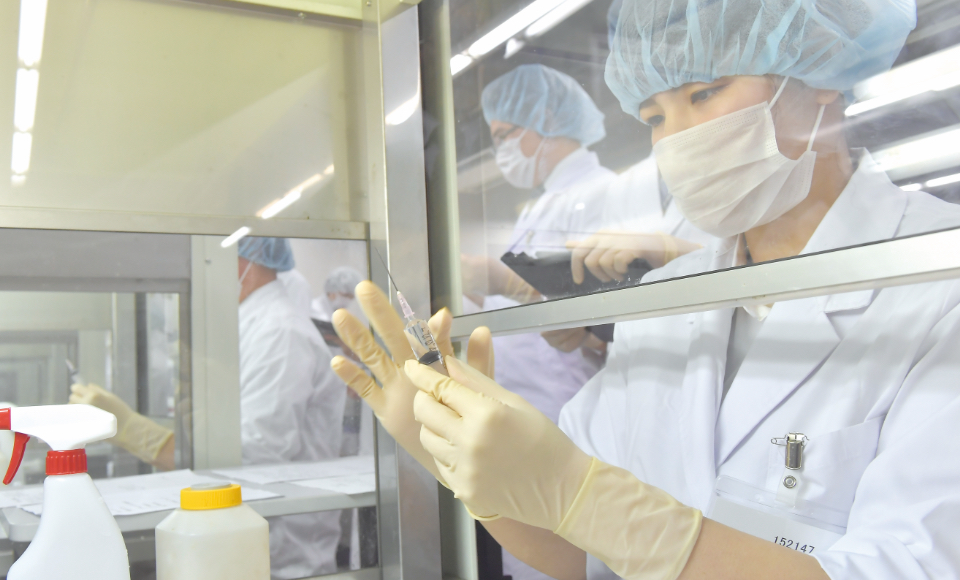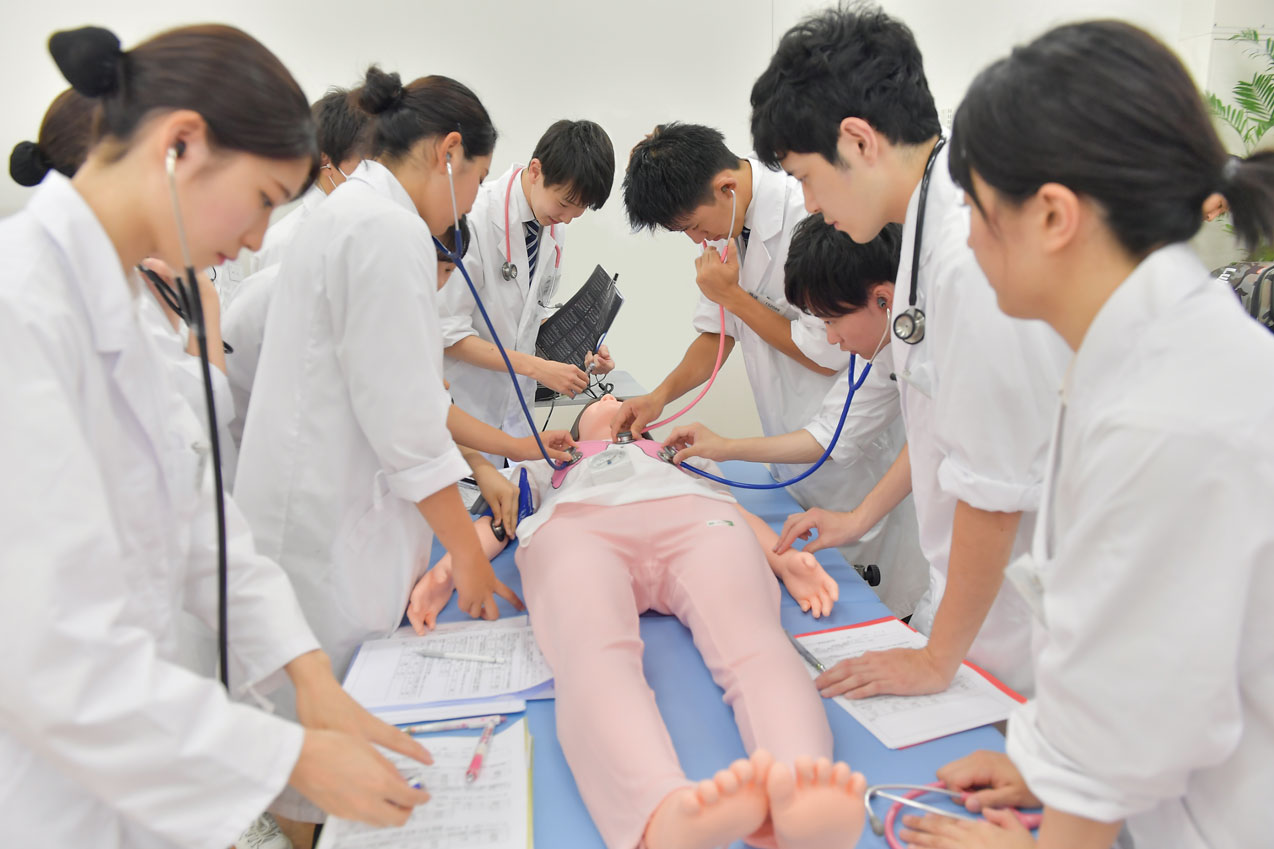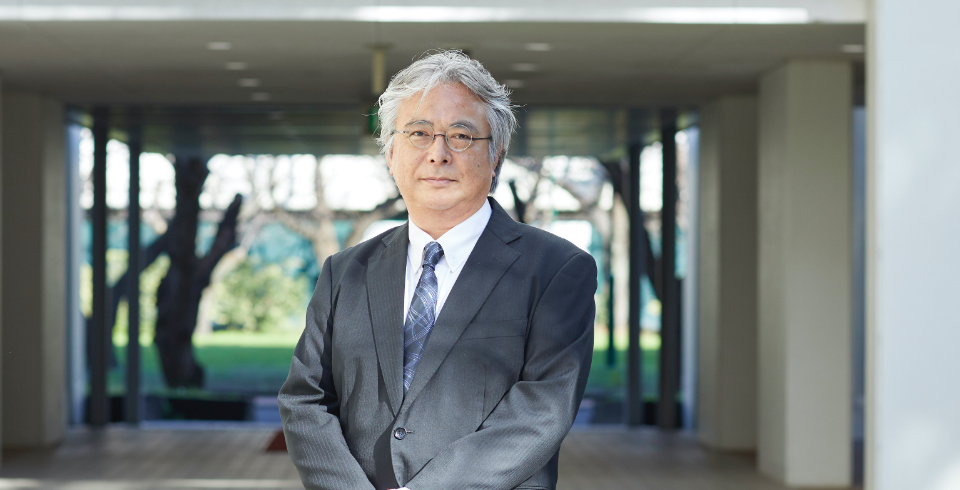

What is clinical pharmacy?
As advances in biotechnology are helping to improve our understanding of vital phenomena at the molecular level, medical technology is evolving to the point where it may soon be possible to change personality or individuality itself by genetic manipulation. The more advanced this technology becomes, the greater emphasis will be placed on the morality of the technical experts who use it. The objective of the Department of Clinical Pharmacy is to train pharmacists who possess not just the knowledge to handle the latest technology, but also a sense of morals and responsibility regarding its use.
The role of the pharmacists of the future will include giving every individual patient their full attention and utilizing every possible means to educate the general public with pharmaceutical knowledge. Their roles as healthcare support staff in hospitals, and even their specialization as pharmacists able to deal with individual diseases such as diabetes and cancer, will require them to be able to interact directly with patients.

Training human resources as pharmacists with practical clinical abilities
Compared with Japan, the social status of pharmacists is higher in Western countries, where they are treated on an equal basis to doctors. The reason for this difference between Japan and the West is said to stem from a difference in practical clinical abilities. One of the aims of the six-year courses in pharmacy, which were established in 2006, was to enhance the practical clinical abilities of pharmacists by means such as extending the duration of hospital training. Our goal is to train pharmacists with the same high level of expertise as in Western countries. The Japanese pharmacists of the future will be expected to engage with doctors and nurses in equal partnership, as in Western nations, and to play key roles as healthcare staff. The aim of the YUP Department of Clinical Pharmacy is to train such human resources.
Research Fields
Fundamental Pharmacy
Developing the theory behind the drug treatment of disease

Functional Morphology
The living body contains a large number of organically connected organs, and maintains its vital activity by managing the exchange of information. Understanding how the body functions when it is healthy is essential in order to understand the biological changes that occur in illness. It is also an important academic discipline for elucidating the mechanisms of action of drugs.
Pharmacology
This discipline investigates the mechanisms of action of drugs in the living body, and is a core research field for selecting drugs for pharmacological therapy. It is essential for understanding not just the efficacy of pharmaceuticals but also the mechanisms by which their adverse actions appear, including side effects and drug interactions, and preventing these risks from actually occurring.
Pathologic Physiology
Basic knowledge of patients' most important symptoms and clinical laboratory test values can be helpful for finding out important patient information. The provision of effective treatment requires disease-related knowledge. This field provides important information for choosing drugs and preventing their side effects when carrying out drug treatment.
Pharmaceutics
For a drug to act effectively, the necessary dose must reach the appropriate site at the optimum time. Based on the physicochemical and biological properties of drugs, this field investigates drug interactions when multiple medications are used at the same time, and studies the forms and routes by which these drugs should be administered as a result.
Clinical Pharmacy
Applied pharmacy directly related to clinical practice, on the front line of pharmacists' work

Pharmacokinetics
To ensure the correct use of pharmaceuticals, an accurate understanding of the in vivo kinetics describing how drugs are released, dissolved, absorbed, distributed, metabolized, and excreted after administration is vitally important. This essential academic field measures the concentration of drugs in blood to devise dosing schedules, and studies methods to ensure that the necessary dose of a drug acts for the required time.
Clinical Pharmacology
How drugs act may vary depending on factors such as the patient's age and sex, the type and severity of the disease, whether or not any other conditions are present, and if they are pregnant. This academic discipline studies the characteristics of the actions of pharmaceuticals depending on the physiological characteristics of the person receiving drug therapy. It also includes clinical efficacy evaluations, which are carried out on patients in the development of new drugs.
Pharmacotherapeutics
Using basic knowledge from fields including pharmacology and pathophysiology, this field studies the best options for appropriate drug treatment, selecting the drug and its dosage and administration in accordance with the status of individual diseases. It is also related to searching for pharmaceutical information concerning prescription drugs, as well as counseling patients at the pharmacy counter and providing guidance on how to take medication.
Clinical Pharmaceutics
This academic discipline studies the knowledge and skills required for the entire workflow of the main jobs carried out by pharmacists in healthcare settings, from accepting prescriptions to resolving prescription-related questions, dispensing drugs, and providing guidance on how to take medication. It also covers other major tasks undertaken by pharmacists, such as ward responsibilities, managing medication records, and tasks related to drug information.
